Enterprise is investing in its 28-strong network of Flex-E-Rent depots, with its new £1 million flagship site in Rugby providing a blueprint for the future.
Billed by Flex-E-Rent as a ‘commercial mobility hub’ for businesses needing flexible access to vans, trucks and specialist vehicles, it occupies a 3.5-acre site that replaces a much smaller depot in Coventry.
It includes three heavy goods vehicle (HGV) workshop bays and seven van bays, as well as both washing and valeting facilities, and can accommodate 3,000 vehicles.
The site also has maintenance and servicing facilities, which Enterprise says will help minimise vehicle downtime.
Danny Glynn (left), managing director of Enterprise Flex-E-Rent, says the Rugby depot is the “prototype” for how it intends to deliver commercial vehicle ‘mobility’ in terms of size and capability. He says:
“It is a clear signal of our ambition to expand and adds another important link to our national branch network, providing businesses with commercial vehicles, technology and expertise essential to keep people and goods moving.”
Glynn adds: “The West Midlands is a key part of the UK economy and there is increasing demand for commercial vehicles from many business sectors.
Enterprise is investing in its 28-strong network of Flex-E-Rent depots, with its new £1 million flagship site in Rugby providing a blueprint for the future.
Billed by Flex-E-Rent as a ‘commercial mobility hub’ for businesses needing flexible access to vans, trucks and specialist vehicles, it occupies a 3.5-acre site that replaces a much smaller depot in Coventry.
It includes three heavy goods vehicle (HGV) workshop bays and seven van bays, as well as both washing and valeting facilities, and can accommodate 3,000 vehicles.
The site also has maintenance and servicing facilities, which Enterprise says will help minimise vehicle downtime.
Danny Glynn (left), managing director of Enterprise Flex-E-Rent, says the Rugby depot is the “prototype” for how it intends to deliver commercial vehicle ‘mobility’ in terms of size and capability. He says:
“It is a clear signal of our ambition to expand and adds another important link to our national branch network, providing businesses with commercial vehicles, technology and expertise essential to keep people and goods moving.”
Increasing demand
Glynn adds: “The West Midlands is a key part of the UK economy and there is increasing demand for commercial vehicles from many business sectors.
“This new depot will ensure we continue to provide a first-class service to our customers and support the growth of the regional economy.”
It’s a dozen years since Enterprise launched its commercial vehicle rental division and Glynn has been there from the start. He joined Enterprise as a trainee accountant and spent eight years as a financial controller before launching Flex-E-Rent in 2010.
“When we started, we would have done some tippers and some dropsides, but outside of that everything was LCV (light commercial vehicle),” he explains.
The acquisition of Burnt Tree, which was completed in 2014, enabled Flex-E-Rent to diversify its fleet, particularly in terms of HGVs and temperature-controlled vehicles.
It also gave the new business scale. Burnt Tree’s fleet of 17,000 commercial vehicles helped increase the Flex-E-Rent fleet beyond 25,000 vehicles. It also brought into the fold a network of 20 branches and the knowledge and expertise of its employees.
The acquisition of SHB Hire in 2019, with a rental fleet of more than 18,500 vehicles, would further increase Flex-E-Rent’s reach.
Enterprise had always favoured organic growth, not growth through acquisition, but buying both National and Alamo in 2007 changed its outlook, according to Glynn.
“It went better than anybody could have foreseen and was an unbelievable strategic decision for the business,” he explains.
“From then on, we’ve really moved into understanding that good acquisitions can really help the business grow and then, when it became apparent that the company wanted to become a mobility provider as opposed to just a car rental company, everything was on the table.
“I’m not sure there is anyone else in the market that can provide a customer with a car to rent for an hour or a HGV tractor unit for seven years.”
Today, having grown its Flex-E-Rent fleet by 20% on pre-pandemic levels, it operates 70,000 commercial vehicles ranging from small vans to 44-tonne tractor units, including specialist vehicles such as traffic management, construction, temperature-controlled, all-terrain buggies and accessible minibuses.
“The only gap we’ve currently got in the UK is refuse,” says Glynn. However, that could soon be filled given the recent acquisition of Dublin-headquartered Walker Vehicle Rentals.
Once integrated, the business will operate as part of Enterprise Flex-E-Rent.
Its customer base includes local authorities and companies in the logistics, waste and food industries.
“We’re going to learn from that business and at some point, hopefully in the future, we’ll be able to put that knowledge to use here,” Glynn says.
In the meantime, work on improving Flex-E-Rent’s network of UK depots has been ongoing, with five sites – Grays, Bridgend, Manchester, Newcastle and Rugby – completed in the past 18 months.
The multi-million pound improvement programme has been driven by a desire to benefit staff retention and recruitment, and cater for fleet customers looking to be more efficient, with vehicle availability key.
Reducing downtime
As well as bricks and mortar, it has also invested more than £1m in new equipment to reduce commercial vehicle downtime, with the aim of keeping customers on the road for longer.
“It’s building our network to be able to support not just where we want to be today, but where we want to go tomorrow,” says Glynn.
The new investment diagnostic and workshop equipment includes specialist tooling and direct system links to manufacturers, as well as roller brake testers and ancillary equipment maintenance such as tail-lift weight testing.
It has boosted Enterprise Flex-E-Rent’s in-house workshop capability by 30% across all UK depots.
Enterprise says it will enable it to shift vehicle off-road time (VOR) away from unplanned, reactive maintenance events towards scheduled maintenance, which involves regular servicing or compliance checks.
It has been estimated that downtime costs UK fleet operators in excess of £2 billion per year, and that fleet vehicles which are part of a maintenance programme to experience 20% fewer unplanned downtime days.
Enterprise uses a range of metrics for VOR, including tracking the percentage of fleet off the road and key-to-key time.
It also acknowledges that managing vehicle downtime is that much harder since Covid, coupled with other macro-economic and supply chain issues.
A UK-wide shortage of parts, technicians and new equipment means keeping vehicles on the road is now more challenging than ever.
“We are adapting and investing to keep pace with customer demand at a time when rental is becoming a core strategy helping commercial operators ensure flexibility and quickly add or reduce capacity,” explains James Walker, group service maintenance and repair manager at Enterprise Flex-E-Rent.
“We know vehicle downtime has a significant impact on our customers and our customers’ customers – so improving key-to-key time is vital.
“This new investment in technology enables us to improve preventative in-house maintenance, reducing costly unplanned and reactive off-road time.”
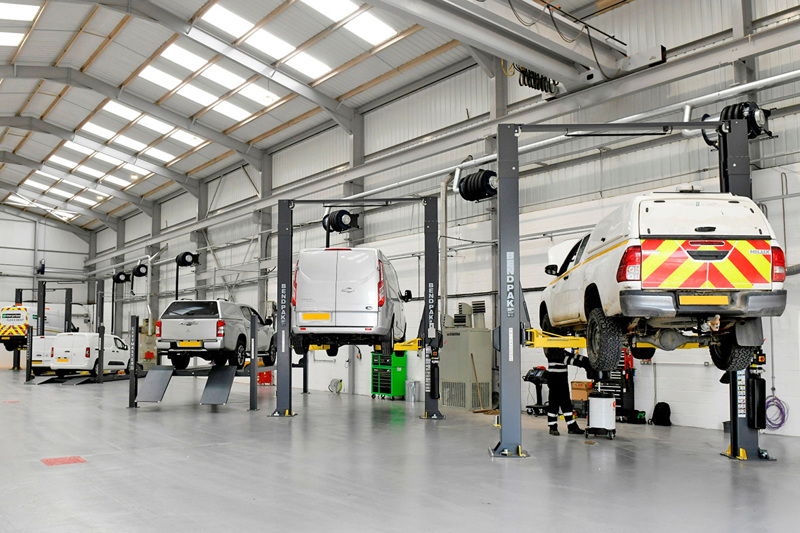
With Enterprise, like other rental providers and fleets, facing longer lead times for some vehicles, Glynn says: “We’re definitely having to keep vehicles for longer.
“I’m not sure if the age of the fleet has increased, but we’re starting from a strong point so I would hope that our overall fleet, in terms of age, still compares well with the market.”
He acknowledges that the biggest challenge is that this increases the risk of greater downtime, hence the company’s focus on measures aimed at mitigating this for its customers.
Enterprise supplies rental vehicles into key service areas such as infrastructure, logistics and home-delivery, where effective measurement and management of VOR is an ongoing priority.
“Vehicle availability is one of the things that we’re graded higher on by our customers in comparison with our competitors,” notes Glynn.
While vehicle availability is crucial for customers, decarbonising operations and electrification comes a close second, he says.
In terms of electric vehicles (EVs), it built its first EV workshop bay recently and, while the pace of electrification is slower than that of cars for commercial vehicles, Glynn is keen to ensure that Enterprise if there to support customers. He says:
“Three years ago, we would buy an EV based on an order from a customer, we’re now buying our own electric fleet and utilising it as and where customers see fit.”
Login to continue reading.
This article is premium content. To view, please register for free or sign in to read it.




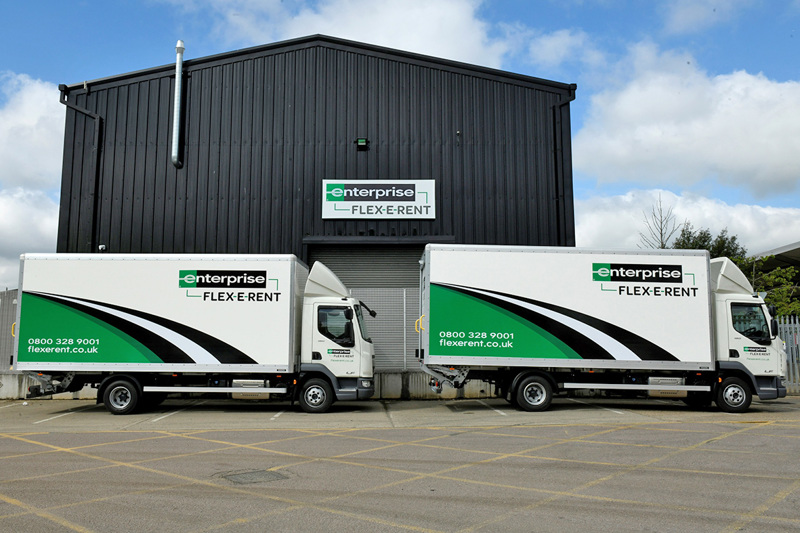
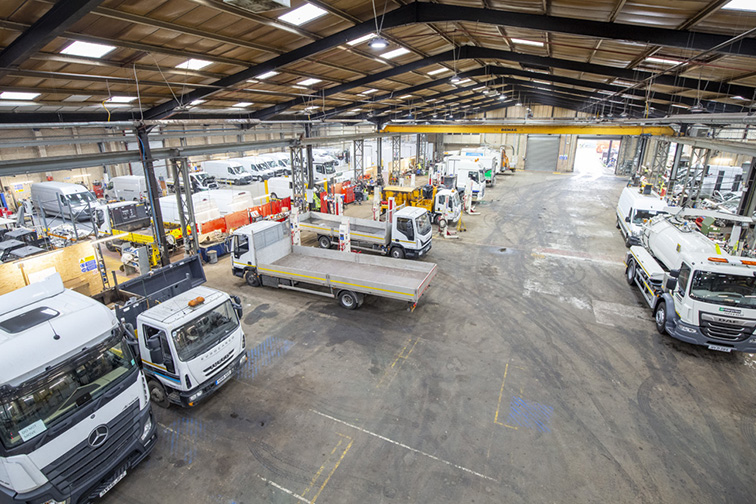

















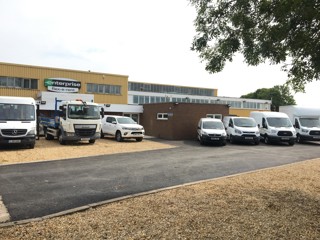
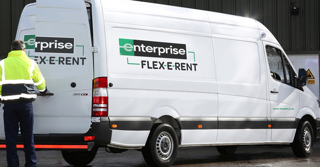
Login to comment
Comments
No comments have been made yet.